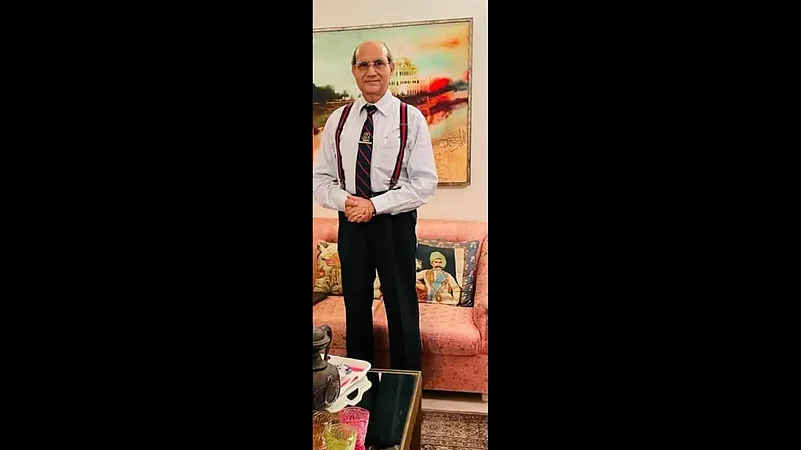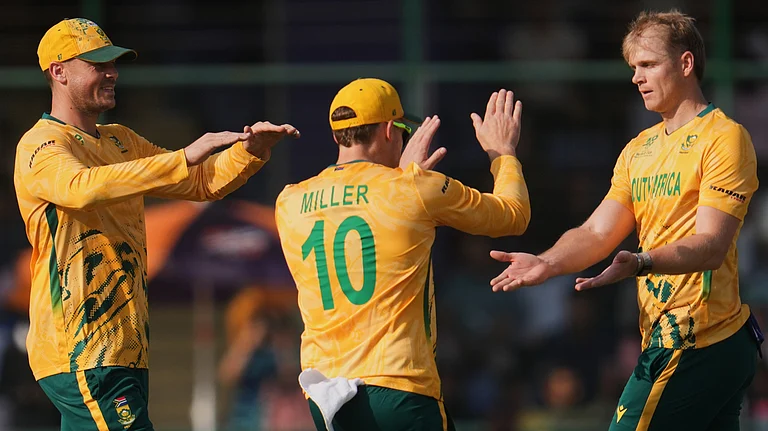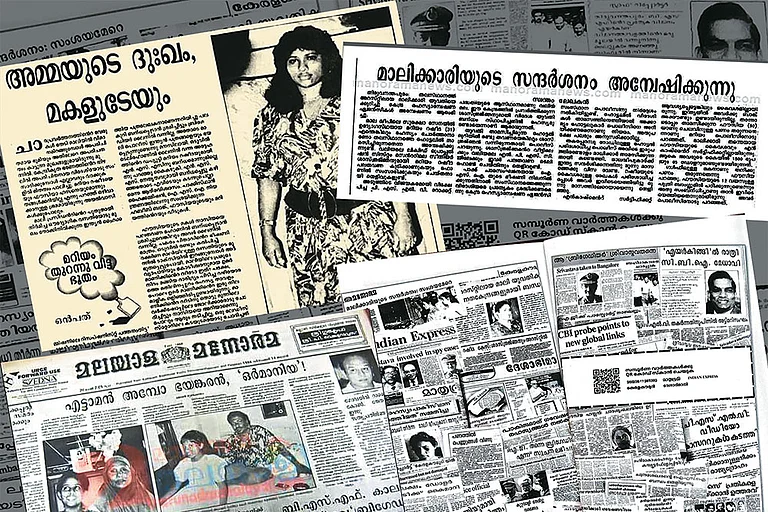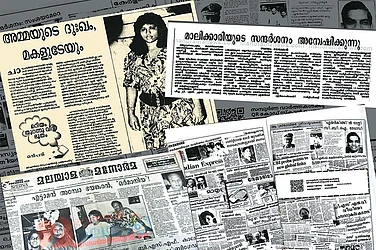Anis Ansari retired as the Additional Chief Secretary of Uttar Pradesh. He is also the chairman of UP Congress’s Ex-Officer’s Organisation. A Pasmanda Muslim, he has been a vocal advocate for his community’s rights. Edited excerpts from an interview with Outlook’s Ashutosh Bhardwaj.
Since the term Pasmanda doesn’t exist in the consciousness of most Muslims, how do you expect to build a political momentum around it?
Most poor Muslims don’t understand the term Pasmanda, but they have a fair idea that they belong to backward communities or the Mandal groups and face discrimination. A 2017 survey found out the comparative status of the Pasmandas vis-à-vis the Ashrafs, OBC Hindus, SC Hindus, ST Hindus and Upper caste Hindus. Following this survey a book, Backward and Dalit Muslims, came out about the social, education, health, employment status of the Pasmandas, and their representation in governance and politics.
This report found serious discrimination against the Ajlafs and the Arzals. They even have different graveyards. The OBC and Dalit Muslims are not allowed to bury their dead in Ashraf’s graveyard. Kasaiyon ke kabristan alag hain. Majority of the respondents said that when an Ajlaf visits the home of an Ashraf, they are given different utensils. True, all Muslims read namaz together and OBC Muslims are Imams, but other social exchanges are rare. Let alone the Dalit Muslims, even OBC Muslims are not represented at major Muslim institutions like All India Muslim Personal Law Board and All India Milli Council.
Marriages between the Ashrafs and the Ajlafs are rare. Strangely, the Ashrafs have even found its justification. The Prophet once said that marriages should be among equals. It was interpreted to the extent that in 1913 Maulana Ashraf Ali Thanvi made a list of valid marriages that can be performed among equal biradaris. It legitimised hierarchy. Everyone is equal in Islam, but not in the Muslim community. Those who were converted from Hindus continued with their caste system.
Muslims also have a graded inequality. The Ansaris are among the most educated OBCs, well organised politically. They also don’t marry outside the Ansaris. Their struggle and mobilization began in the 1930s, when Maulana Asim Bihari and Abdul Quaiyum Ansari began the Momin movement for backward Muslims. They formed their political party, and won 5-6 seats in Bihar. Ansaris and Qureshis have become politically powerful over the decades, but still they have little upward social mobility. They don’t have marriages with Ashrafs.
The Ashrafs have severely damaged the backward Muslims. Syed Ahmad Khan was a British supporter and wrote a book Asbabe Bagawat Hind (Causes of Indian Mutiny) on 1857, and sent its English translation to the British rulers. He wrote that a major reason of mutiny was that “badjaat julaahe (illegitimate weavers)” were at the forefront. He tried to tell the British that the Ashrafs were with them. Ashrafiya Muslims led to the creation of Pakistan. The Momin movement was aligned with the Congress and was against the Partition. OBC Muslims openly opposed the Partition and termed the Muslim League politics as Ashrafiya politics. Upper caste Muslims didn’t want their zamindari and power to go away.
The Muslim League lost even from Muslim areas like Bengal and Punjab in the 1936 elections, but it won in 1946 because of the skewed voter eligibility. Since the eligibility was the ownership of 1 acre land and a minimum high school qualification, only 6 percent of total Muslims were eligible to vote. On the basis of those 6 percent Ashrafs like Jinnah and Liyakat Ali Khan, who dominated the Muslim League, the country was partitioned.
How do you see the Muslim representation in OBC reservation?
The percentage of Muslim OBC reservation is poor in UP as well as at the Centre. The new system of lateral entry will further affect the reserved candidates. During the Rajnath Singh government in UP, a committee was formed under senior BJP leader Hukum Singh. He said that the OBC reservation is being taken away by Yadav, Kurmi, Jat and Lodh. He recommended that there should be a provision for the Economically Backward Castes. UP has not implemented it so far.
SC Muslims face a huge injustice. In 1950, the GoI brought out an order directing that the benefits of reservation under Article 341 shall be only for Hindus. This is an unconstitutional provision. The Mandal/OBC classification is not on the basis of religion. Article 15 says the State shall not discriminate on the basis of religion or caste, but its sub clause 4 adds that the State can make provisions for socially and educationally backward communities. Article 16 says that the State cannot discriminate in the matter of public employment, but its provision 4 says that it can make reservations for socially backward communities, which are underrepresented.
Religion is not a constraint in the ST or OBC reservation. Why is it so in the SC reservation?
After Master Tara Singh launched a movement, Sikh Dalits were included in the SC category. Later, the Buddhists were included among the SCs. Why the Muslim Dalits are not considered eligible for reservation? Some say that by giving the SC reservation, Muslim population will increase. But why has it not increased with the OBC or ST reservation?
How do you read the BJP’s latest move?
I don’t know the intention of the BJP, but I think that the way they reached out to the OBC Hindus, they are now trying to reach out to the OBC Muslims. UP has some 70 percent OBC Muslims, whereas in India 80-85 percent Muslims are OBC. In Bengal, Kerala and Assam, the OBC Muslim ratio is even more. Mohan Bhagwat has already said that the DNA of Indian Muslims is Indian. The Ashrafs trace their lineage to Iran, Turkey and Arabia. They love their land (India), but feel proud of their genetic lineage. The Syeds consider themselves to be the children of the Prophet. The BJP knew that it’d be difficult to bring the educated Ashrafiya closer. They are now reaching out to the OBC Muslims for political gains.
Has the BJP government done anything special for the Pasmandas?
They are not doing anything new by giving homes and toilets. These schemes are not religion specific. Since Muslims are poorer, there will be more beneficiaries among the community.
One District One Product scheme is a good scheme. It’s a religion neutral scheme, but it has benefitted more Muslims. It has promoted Muslim dastakaar/artisans like ansari (weavers), chhipi (printers), mansuri (cotton carders), mochi (shoemaker), darji (tailors), kumhar (potters).
Will the BJP’s move create a division between the Pasmandas and the Ashrafs?
This division has existed for at least 700 years. The Sachar Committee has accepted it. It’s exactly the same argument when Ambedkar had started saying that untouchables are not part of Hindus, some people said he was damaging the Hindu community. Some Ashraf leaders played a major role in damaging the Pasmanda movement.
I don’t support the BJP, but this move will hurt the SP. They still have the Muslim support, mostly the Muslim OBCs. It would also have a cascading impact all over India. OBCs are some 56 percent of the total Indian population. Muslims comprise 14 percent of total OBC population.
Yogi has appointed some OBC Muslims. Earlier these posts went to the Ashrafs. But if the BJP continues with its Hindu-Muslim campaign, it won’t gain politically.


























